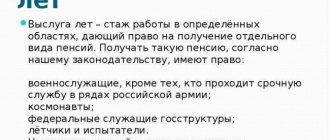This period can last up to three months. At the same time, the accrued salary is lower than that of someone who has been working for a long time.
Throughout the probationary period, management carefully looks at how the newcomer copes with his duties, whether he is suitable for the position held, whether he has the required level of professional knowledge, and the employee gets acquainted with the work and management.
If the head of the organization is satisfied with everything, then the employee can count on a salary increase and employment on a permanent basis.
However, it happens that an employee is unable to find a common language with management, and personal problems also arise. Let's find out what the procedure for dismissal during the probationary period is at the initiative of the employee.
The main reasons for dismissal during a probationary period according to the Labor Code of the Russian Federation
The current Labor Code of the Russian Federation clearly indicates the categories of persons hired without a probationary period:
- employees who were invited to a position by transfer from another organization;
- employees who received this position as a result of a competition;
- women expecting a child;
- women whose children have not reached the age of one and a half years;
- employees under 18 years of age;
- employees with whom they work under a fixed-term contract for a period of up to 6 months.
All other employees are accepted on a probationary period. There are three reasons why they may be fired from the enterprise/company during this period:
- employee initiative;
- employer initiative;
- end of the probationary period.
Each of them has its own calculation procedure and certain points that are worth paying attention to.
Dismissal at your own request during a probationary period
If, while working at an enterprise/company, a newly hired employee considers the assigned duties unsuitable for himself, he can write a statement of his own free will.
The procedure for dismissing him is the same as for an ordinary employee of the company.
He is obliged to notify his immediate supervisor 3 days before the date of settlement. This is stipulated in the Labor Code of the Russian Federation. In this case, an employee can resign while on sick leave or on leave without having to go to the workplace.
Dismissal at the initiative of the employer before the end of the probationary period
When a newly hired person performs poorly the duties assigned to him (according to the Labor Code), the manager can fire him before the end of the probationary period.
The employee is notified in writing about the future payment 3 days in advance. In this case, the reason for dismissal must be indicated.
The warning is drawn up in two copies with the signature of the head and the seal of the organization. The first is sent to the employee, the second remains in the office.
At the end of the verification period
If the appointed probationary period, in the opinion of management, was not successful, then the organization/enterprise issues an appropriate order to dismiss the employee due to poor performance results.
On the same day, the final payment of the employee is made. He is given a work book in which the corresponding entry is made.
The Labor Code of the Russian Federation reserves the right of a dismissed employee to demand an explanation of the reasons for his dismissal.
Prohibition of probation
Some workers should not be given the test. They are listed in Art. 70, 207, 289 Labor Code of the Russian Federation:
- pregnant women and mothers with children under one and a half years old,
- fathers without mothers with children under one and a half years old,
- employees under 18 years of age,
— young specialists in the first year after receiving a diploma,
— employees under an employment contract for a period of up to 2 months,
- former trainees with whom they entered into a student agreement.
For testing workers from this list, the labor inspectorate fines them under Art. 5.27 Code of Administrative Offenses of the Russian Federation.
Features of the situation
Any dismissal is an unpleasant procedure for both the employee and the employer.
Each of the reasons for dismissal during a probationary period has a number of features that you need to know.
If you resign of your own free will (personal reasons) and suddenly the situation changes radically, then you have the right to withdraw your application and continue working in the company/enterprise under the same conditions.
When dismissal occurs at the initiative of the employer, it is necessary to follow a certain procedure:
- Drawing up acts, memos with precise recording of these instructions and the results obtained.
- The presence of serious errors and inconsistencies in the work performed, recorded in writing.
- Drawing up reports of the employee analyzing his mistakes and indicating how to correct them in his work.
The documents provided must indicate the exact date. This will avoid charges of illegal dismissal.
After issuing a notice of dismissal, it is handed to the employee against his signature. If he refuses, this fact is subject to mandatory recording by a special commission. It is worth noting that the employer in this situation is not obliged to coordinate its actions with the trade union.
If you are the person being dismissed and consider the fact of payment from the company to be incorrect, the absence of the documents provided gives you every right to go to court and seek reinstatement.
When making payments at the end of the probationary period, the employer is required to provide a written explanation of its actions. Don't be afraid to demand them from him. This is your right, and it is guaranteed by the Labor Code.
How to add a probation clause to an employment contract
The terms of the probationary period are specified directly in the employment contract. Select a separate block in the document and write:
- test period;
- goals and objectives for the probationary period;
- the criteria by which you will evaluate the results of the test.
Typically, employers indicate only the term, but omit the remaining conditions. It’s better not to do this: the more detailed the test is regulated, the less chance that the employee will not appeal the dismissal.
Example
. The company is hiring a sales manager, the probationary period is two months. The employee was not very good at selling the product to customers, so the boss decided not to keep him at work. But the employment contract did not indicate specific results, so the manager appealed the dismissal to the inspectorate - the employee had to be reinstated.
How to avoid such situations? Indicate in the contract the results you expect from employees. For example, if a manager was given a goal of 500 cold calls, 20 leads and two deals, but he made few calls and did not close a single deal, then such dismissal will be difficult to challenge. Of course, if the employee’s results can be confirmed.
Sometimes employees do not have time to conclude an agreement and start working. For example, the driver urgently takes over the flight, but the accountant did not have time to prepare the documents. In such situations, the supervisor enters into a probation agreement with the employee. You need to indicate all the conditions: deadline, goals and evaluation criteria. When an employment contract appears, the agreement will become its addition.
Working off
Working off a probationary period upon dismissal is not mandatory. According to the Labor Code of the Russian Federation, its period has been reduced from two weeks to three days.
Workout is carried out only by an employee who has decided to resign of his own free will.
If the employee is paid at the end of the probationary period or at the initiative of the boss, the period worked is completely excluded.
Remember that in this case no one has the right to demand that you go to work. Having received the order in your hands, you immediately pick up your work book and full payment for the time actually worked.
Mistakes made by employers when applying for a probationary period
The employee disputes the unsuccessful test in court.
If the court finds errors, the employee will be reinstated or the wording in the work book will be changed to an entry of his own free will. The employer will be required to compensate wages and moral damages.
It turns out that due to mistakes, the entrepreneur is obliged to hire an incompetent person.
Article: employer's responsibility to employee
Dismissed people sue quite often. Therefore, employers' mistakes are known. Let's talk about them using examples from court cases.
Fired after expiration of probation period
You cannot say on the last day of the probationary period: “You are not suitable for us.” The employee is given three days' notice of dismissal.
The beauty salon administrator was fired on the last day of the test. It turned out that she did not always bounce checks for clients. The employer thought that days off would count toward the deadline, but no. The administrator got his job back.
Case No. 33-10467/2017
The probationary period was not included in the employment contract
The lawyer was fired during the probationary period. He could not cope with the overlapping court hearings and ignored meetings.
In court it turned out that the employment contract with the lawyer was not signed. He worked under the order of admission - and they set up a test in him. But without an entry in the employment contract, there is no probationary period. The lawyer was reinstated.
Case No. 33-43726/2015
The employee was not familiarized with job responsibilities
The accountant did not pass the probationary period. The management did not like the fact that she calculated salaries with errors, was late with reports and did not know how to work with the 1C program.
In court, the accountant said that her responsibilities were not explained to her.
The court reinstated the woman at work, explaining the following. Each responsibility is explained to the employee. The job description is presented upon signature. And the employer must teach skills to work in 1C (!).
Case No. 33-7794/2015
The employer did not explain what was wrong with the employee’s professional suitability
When dismissing an employee, they explain in writing what he did wrong.
A construction worker was fired because his colleagues complained about him. The court said: “What does the professional qualities of the employee have to do with it?” There was no evidence of poor performance by the employer. The employee was returned.
Case No. 33-632/2013
A test was assigned to an employee who should not be tested
A fifth-year student was hired to work as an ecologist with a probationary period. A month later she graduated and became a young specialist. Such workers are not checked.
Something went wrong and the employee failed the test. The court reinstated her at work because the probationary period had become illegal.
Case No. 33-11672/2016
Being on sick leave
According to the current Labor Code of the Russian Federation, an employee who, while on a probationary period, went on sick leave, cannot be dismissed from an enterprise or organization at the initiative of the employer. This can only be done by the employee himself at his own request.
It is worth noting that if, at the time of completing the probationary period, you find yourself on sick leave, the employer is obliged to extend it by the number of days that you were absent due to illness.
The first step when deciding to quit is drawing up an application addressed to the manager. How to write a resignation letter correctly: rules for drawing up the document.
Read about what payments an employee is entitled to during layoffs here.
If an employer decides to fire a pensioner, the latter must know his rights. The rights of the employee in relation to the pensioner in this case are exactly the same as in relation to other employees. Here https://businessmonster.ru/personal/uvolnenie/pensionera-po-initsiative-rabotodatelya.html describes all the nuances when dismissing an employee of retirement age. Payments due to an employee by law, as well as the specifics of dismissal of a disabled person.
Employee adaptation
Adaptation in any team is not an easy process, because a new person joins an existing team. Of course, he needs to be helped, not left without support, and appointed a curator to help him during the probationary period.
Who is watching the newcomer during this period?
The following may be involved in monitoring and monitoring the correct execution of tasks:
- the immediate supervisor of the tested employee;
- mentor;
- curator;
- observer.
It is also possible to create commissions, but this practice is usually only suitable for large enterprises.
What are they looking at?
During this period, monitor:
- the ability to quickly master various skills and learn;
- quality of performance of official duties;
- desire and ability to quickly correct mistakes;
- compliance with labor discipline and internal regulations;
- how a person copes with unexpected problems and stress;
- communication skills, communication skills.
Procedure for registration of dismissal
If you resign of your own free will, you just need to submit an application addressed to your manager. After approval, the HR department must give you a work book, and the accounting department must carry out a full calculation in accordance with all the requirements of the Labor Code of the Russian Federation.
The dismissal procedure at the initiative of the employer consists of several stages:
- drawing up a warning about the employee’s payment;
- handing him a note against signature;
- filling out all necessary papers.
In this case, no severance pay is paid. The dismissal procedure at the end of the probationary period involves issuing an order and receiving a work book.
Actions of the employer after the expiration of IP
At the end of the probationary period, after all the necessary documentation has been prepared, the employer studies it and then makes a decision - such an employee is needed or he is not suitable. Accordingly, further events depend on this decision: either dismissal occurs, or the person becomes an equal member of the team.
How is the employee registered after the test?
It often happens that the probationary period has already ended, but the employee continues to work, this means (according to Article 71 of the Labor Code of the Russian Federation) that the test has been successfully passed. That is, it turns out that the employer may not notify the person about this. But it’s better to do this in order to set your employee up for successful activities in the future.
If, at the end of the testing period, an unsatisfactory assessment is received, then the person must be warned 3 days before the date of dismissal (Article 71 of the Labor Code of the Russian Federation) , in writing and against signature.
The reason for dismissal at the initiative of the employer must be legally formulated. It is best to back it up with documents; these could be acts of failure to fulfill duties, complaints from clients, as well as memos or reports that were drawn up by the supervisor and immediate superior during the verification period.
Is it necessary to draw up a termination order?
Such an order is needed only if the trial period ended early (was shortened).
Entry in the work book
If you are registered with an enterprise using a work book, the organization’s human resources department must make an entry in it about the reason for your dismissal. It does not include any mention of disciplinary sanctions and reprimands during the probationary period.
An entry in the work book may not be made if the employee has worked at the enterprise for less than five days.
If an employee pays the company at the end of the probationary period, a record of failure to complete this period may not be made in the labor record. According to the Labor Code, it is enough to make a reference to the order by which the employee was dismissed.
Work upon dismissal is a standard requirement under the Labor Code of the Russian Federation. Dismissal at one's own request without service is possible only in exceptional cases. We will consider what these cases are in the article.
You will find all the legal details about the dismissal of an employee at the initiative of the employer in this material.
What is a probationary period?
The Russian Labor Code allows for the inclusion in a general employment contract of requirements requiring a person to first complete a probationary period in order to obtain a permanent position. However, this condition is possible only with the mutual agreement of each party. The offer to undergo a probationary period comes from the employer. The company is interested in having the right people in permanent positions. For this reason, in order to get a closer look at the new employee, he is asked to undergo a probationary period.
Agreeing or refusing such an offer is the right of every person who gets a job. However, if the applicant for the position does not agree to such conditions, he may not be hired. During the probationary period, a person is obliged to show his best side in order to prove that he is most suitable for this job.
Such rules are very convenient for the employer. In this case, you can consider the person in action, and not just in words during an interview. However, some categories of people are not required to undergo a probationary period. This applies to persons under the age of majority, as well as pregnant women.
The probationary period should not exceed 3 months. However, there are many exceptions to this. For example, contract workers with a contract of up to six months should not undergo a probationary period of more than 2 weeks, and heads of departments and organizations can stay at this stage for up to 6 months. For people who get a job in the civil service, the probationary period can last for a whole year.
The employer does not have the right to extend this period at its own discretion if this is contrary to Russian law. But if senior management wishes, days that the employee spent on sick leave or were absent for a valid reason can be deducted from the probationary period of a new employee. As a result, the duration of the probationary period may be extended for an indefinite period under special circumstances.
Arbitrage practice
Example 1.
The Labor Code of the Russian Federation states that the employer must notify the employee that he has not passed the test no later than 3 days before dismissal. But what if the employee really did not perform his duties properly? The Supreme Court of the Russian Federation, by the decision of the panel for civil cases dated August 14, 2017 N 74-KG17-13, slightly clarified the rule. If there are less than 3 days left before the end of the test, and the fact of failure to pass the test is obvious, this requirement of the Labor Code of the Russian Federation may not apply.
Example 2.
Failure to comply with the manager's requirements, communicated orally and not reflected in the job description, is not grounds for dismissal. This follows from Decision No. 2-479/2020 of May 27, 2020 of the Zarechensky District Court of Tula. According to the published document, citizen R.T.G. was employed at the Tula Regional Youth Center with a probationary period.
However, at a certain point, they began to involve her in performing work not only in her department, but also in others. As a result, R.T.G. stopped coping with the main responsibilities, performing secondary ones. The immediate supervisor did not properly formalize the suspension from work and presented the court with a job description that differed from the one issued to the former employee. As a result, the court satisfied R.T.G.’s demands, declaring her dismissal illegal, reinstating her at work and ordering her to pay substantial compensation.
Dismissal procedure
Some facts
Russians over 45 years of age are least likely to leave their employers during a probationary period (14% - of their own free will, 4% - at the will of the employer). Among 45-year-olds there is also the highest percentage of applicants who have never applied for a job with a probationary period (13%).
The correctness of the procedure for dismissing an employee during the probationary period or immediately after it is of great importance. Failure to comply with any point may become a reason for appealing dismissal in court.
Let's consider the procedure for dismissal:
- the employer must send the dismissed employee a written notice of dismissal in 2 copies no later than 3 days before the end of the probationary period;
- the employee must read the notice and sign the employer’s copy. If the dismissed person does not want to accept the notice, then this fact must be recorded in a special act in the presence of 2 witnesses;
- further, the employer must issue an order to dismiss the employee, listing the facts that served as the reason for severing the employment relationship with him;
- The company’s accounting department must calculate it on the last day of the dismissed employee’s stay at work:
- issue wages for hours worked,
- issue compensation for unused vacation;
Read the regulations on passing the probationary period at the link https://otdelkadrov.online/3018-polozhenie-poryadok-prohozhdeniya-ispytatelnogo-sroka
Dismissal during the probationary period
As already mentioned, one of the parties who decides to terminate the employment relationship must notify the other party in writing 3 days in advance. If the initiator of dismissal is the employer, then, in addition to notice, he must provide the employee with justification for his decision.
Reasons for dismissal may include the following factors:
- violation of labor discipline, including absenteeism;
- the employee’s incompetence in the area of his professional duties;
- inadequate relations with the rest of the workforce.
The payment is provided to the employee on the last day of his work. Severance pay is not included in the calculation.
It is important to know that if the above points are violated during dismissal, then the employee has the right to appeal the dismissal during the probationary period at the initiative of the employer in court. And the employee has the right to count on the success of this enterprise, because there will be a violation of the Labor Code.
How to apply for an extension of the probationary period?
When extending the IP for the number of days during which the employee was absent, the actual end date of the period will not coincide with that specified in the employment contract. This is unacceptable, as it creates clutter in documents and confusion. Let's look at the basics of IP renewal:
- The possibility of extending the probationary period must be stipulated in the employment contract.
- The manager issues a special order to extend the IP.
IMPORTANT! IP can be extended only for the number of days during which the employee was not at work. Therefore, the validity of drawing up the order must be confirmed by documents indicating the absence of the employee from such and such a date. Supporting documents may include working time schedules, an employee’s application requesting time off, or a certificate of temporary incapacity for work.
Features of drawing up an order
The order can be drawn up in free form. It must include the following information:
- Information about the employee and director of the organization.
- Document Number.
- Grounds for extension of time.
- Links to documents confirming the grounds for extension (for example, sick leave). Supporting documents must be attached to the order.
- Extension time corresponding to the number of days missed.
The document must bear the seal of the organization. The order must be presented to the employee against his signature.
IMPORTANT! If an employee is on sick leave, the IS is interrupted and resumed only after the employee returns to work. Responsibility for monitoring the flow of IP usually rests with a representative from the HR department.








